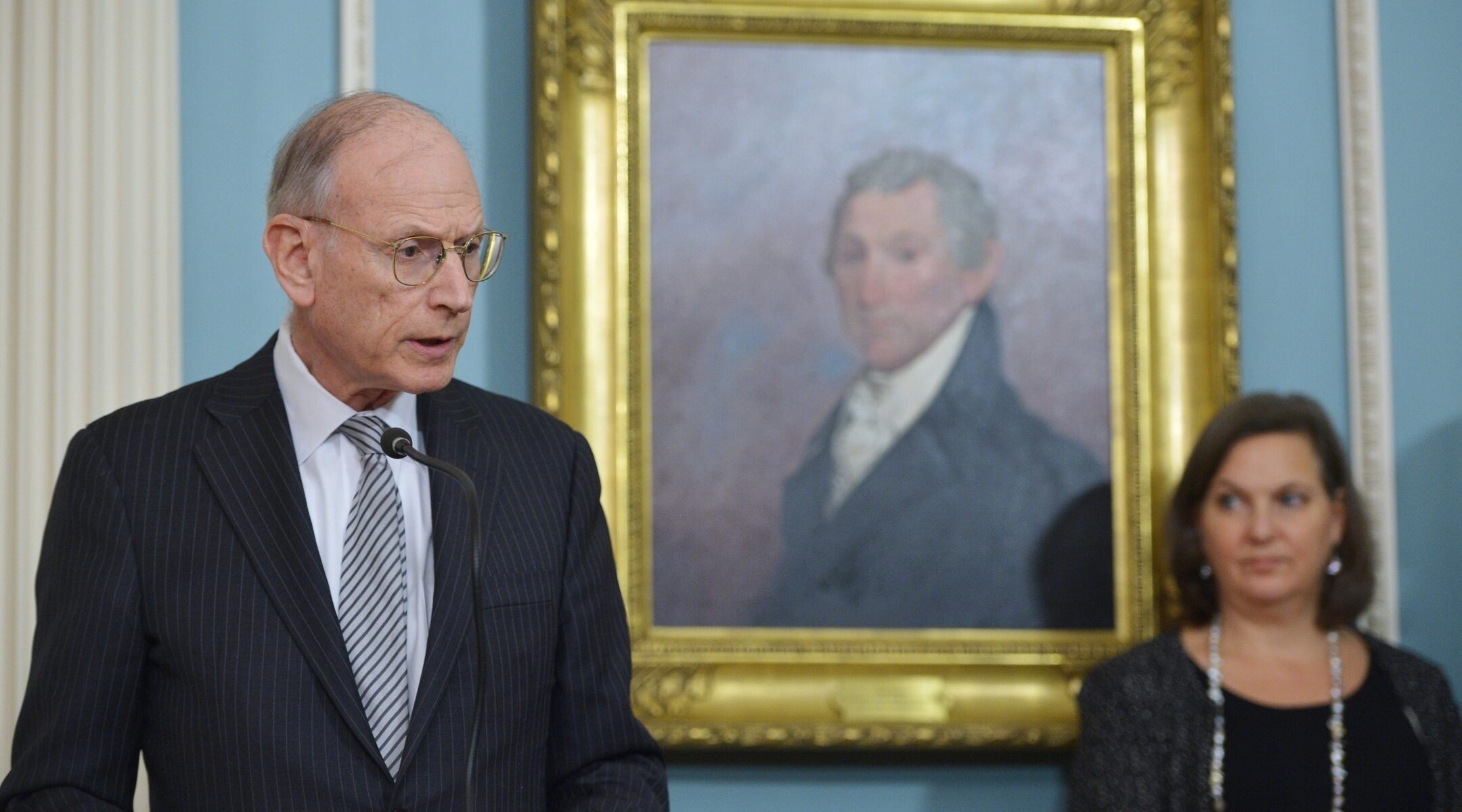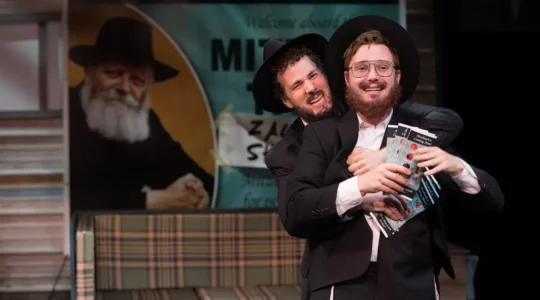WASHINGTON (JTA) — Hamas’ massacres on Oct. 7 delivered “new momentum” to the effort to deliver restitution to the descendants of Holocaust survivors and victims whose property was stolen, Stuart Eizenstat, the State Department’s special adviser on Holocaust issues, said Thursday at a meeting with reporters for Jewish publications.
“There’s a new momentum behind Holocaust remembrance, Holocaust restitution, and Holocaust lessons,” he said. “And those who say, you know, it’s just a thing of the past, we’re reminded by what’s happened in the last few weeks that that’s not the case.”
Hamas’ invasion of Israel on Oct. 7 killed 1,400 people, most of them civilians, wounded thousands and abducted more than 200, in the deadliest single day for Jews since the Holocaust.
Thursday’s press conference featured Eizentstat; Ellen Germain, the department’s special envoy for Holocaust issues; and Mark Weitzman, COO of the World Jewish Restitution Organization. They spoke the day after a meeting convened by the State Department and the WJRO including representatives of 14 countries seeking to advance restitution to descendants of Holocaust survivors and victims.
The Nazis and their allies and proxies, among others, looted and confiscated hundreds of thousands of pieces of property belonging to Jews during and after World War II. The U.S.-led restitution effort, launched by Eizenstat in the late 1990s, has recovered thousands of pieces, including many valuable works of art. A number of countries including, notably, Poland, have limited the ability to seek restitution and say that Holocaust restitution should not be treated as unique. Rather, they say, it should be addressed in the context of privations others suffered in the war and, afterward, during decades of communist rule.
Countries represented at the meeting Wednesday included Israel, the United States, Britain, Croatia, Germany, Moldova, Romania, France, the Czech Republic, Luxembourg, the Netherlands, Austria, Canada and Greece. As part of the recent U.S.-led initiative to advance restitution, five of those countries — the Netherlands, Britain, France, Germany and Austria — have established commissions to examine restitution issues, and Luxembourg has effectively completed its restitution process.
Germain said that those efforts, to pursue justice decades after the thefts and atrocities occurred, makes it clear that the crimes of Oct. 7 will also be addressed — however long it takes.
“Maintaining the values of our liberal democracies, all of that has been thrown into such stark relief with the events of the last few weeks, and that all connects right up with bringing a measure of justice for Holocaust survivors and their families, even after 80 years,” she said. “There is no statute of limitations on trying to bring perpetrators of such a great injustice to account for what they’ve done.”
Eizenstat said that virtually every diplomat and official present at the restitution meeting on Wednesday framed their mission in the context of Oct. 7. “It was a major focus of attention, the number of countries as we went around the table, who spoke about it, who said that this demonstrates that the hatred against Jews and against Israel is not something of the past, was itself very enlightening,” he said.
Eizenstat said Oct. 7 also brought the horrors of the Holocaust home for younger Israelis and Jews. “The number of young people who were involved in these attacks, who said, ‘Now we understand what our parents and grandparents went through’,” he said.”It thrust the Jewish past into the present.”
JTA has documented Jewish history in real-time for over a century. Keep our journalism strong by joining us in supporting independent, award-winning reporting.






